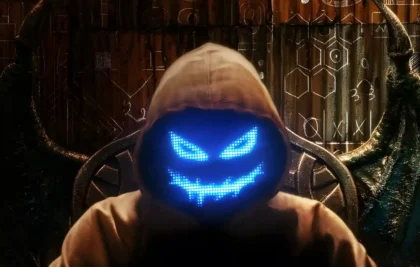The Devil’s Plan: Death Room premieres in May with new players and strategic tension
The second season of The Devil’s Plan premieres worldwide on Netflix on May 6, 2025, now with a chilling subtitle that sets the tone: Death Room. The Korean reality show that went viral by turning intelligence into a social weapon returns even more intense, promising to raise the stakes in paranoia, betrayal, and psychological warfare. Since its debut, the series stood out by offering more than traditional entertainment — and now, with new participants and a redesigned structure, expectations are higher than ever.
The prison wing becomes the heart of the game
In the first season, the prison was already a source of discomfort and social friction. Now, it becomes an official and essential element of the game. After each main match, contestants are divided into two groups: the top half move into the living quarters, while the bottom half are sent directly to the prison wing — isolated, pressured, and exposed.
This new system deepens the show’s social dynamics, giving even more weight to every decision — both in the matches and in the alliances.
What to expect from the new season
With 14 contestants confirmed, the new season of the Devil’s Plan expands the scale of the competition without giving up the intense seven-day confinement. The challenges feature new mechanics and unexpected twists, while the prize remains high: ₩500 million (approximately $350,000 USD).
The cast includes celebrities, analytical minds, and strategic figures, promising a season defined not just by logic, but also by manipulation and emotional gamesmanship. Confirmed players include:
Lee Se Dol, Go legend and the man who defeated AlphaGo;
Kyuhyun, member of K-pop group Super Junior;
Justin H. Min, actor from The Umbrella Academy and Beef;
Yoon So Hee, actress and KAIST graduate;
Seven High, professional poker player;
Jung Hyun Gyu, from dating reality EXchange 2.
The official trailer already teases shaky alliances, unexpected betrayals, and direct confrontations. “You betrayed me?” one player asks. “Of course I did. You broke our alliance,” comes the cold reply. More than ever, victory will depend not only on logical thinking — but on emotional control and the ability to read your opponents without flinching.
Why the show became so addictive
Released as one of Netflix’s boldest reality show experiments, The Devil’s Plan grabbed attention from the start by combining logic-based competition, forced cohabitation, and strategic manipulation. In Season 1, twelve contestants were confined for seven days and six nights, facing puzzles that blended reasoning with psychological pressure.
Its strength lies in how it exposes the fragility of alliances and tests the morality of players. Winning requires more than intelligence — it demands the ability to understand how others think and protect your own mind from collapse.
More than a game — a social mirror
In recent years, reality shows have moved beyond testing physical endurance or popularity. A new generation of formats has emerged — focused on logic, adaptability, and emotional intelligence — and The Devil’s Plan fits this trend perfectly.
Watching the show often feels like witnessing a social experiment. Who cracks under pressure? Who’s easier to manipulate? How long does someone maintain their rational façade when the prize is within reach?
Between logic and paranoia: a game for the unshakable
Besides the mental challenges, the new season hints at psychological and possibly horror-inspired elements within the living quarters. Strange sounds, off-kilter movement, and shocked reactions suggest that something is not quite right. One contestant whispers, “Something moved in a way it shouldn’t have,” while another adds, “What happened in there… was beyond human imagination.”
With this eerie atmosphere, the show continues to blur the line between absurdity and intensity. The Devil’s Plan doesn’t take itself too seriously — and yet, it should be. The real game always seems to happen just beyond the visible rules — and each player must decide what they’re willing to believe.
Posts Recomendados
Carregando recomendações...




